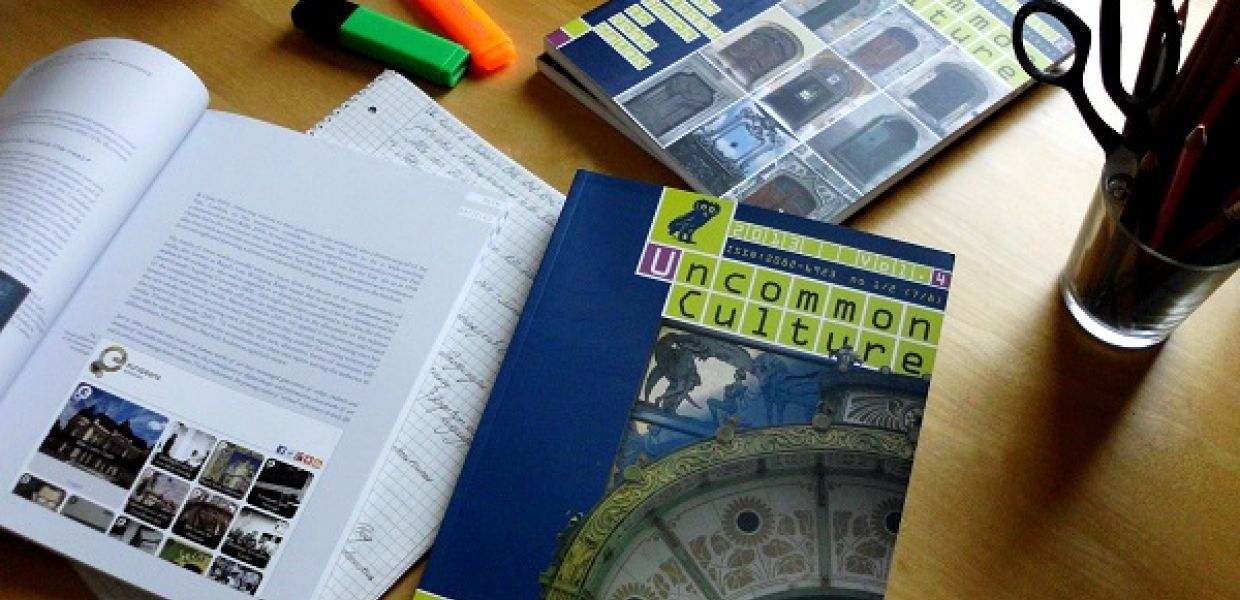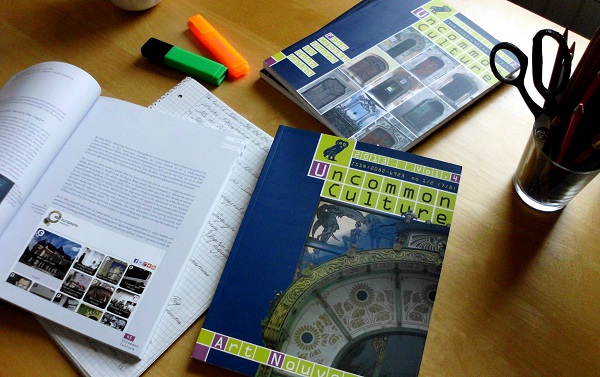Uncommon Culture

By Prof. Monika Hagedorn-Saupe and Arlene Peukert, Stiftung Preussischer Kulturbesitz (SPK)

Uncommon Culture provides unique perspectives on a rich variety of cultural activities in Europe. Examining cultural institutions and their collections, this magazine gives new insight into diverse cultural activities. CC-BY-SA.
Uncommon Culture is a scientific journal realised within the ATHENA Project Consortium. The journal was born from an idea of Maria Śliwińska, chief editor of Uncommon Culture and the director of ICIMSS. Uncommon Culture is a peer-reviewed journal providing unique perspectives on a rich variety of cultural activities in Europe. Examining cultural institutions and their collections, this magazine gives new insights into diverse cultural activities. Uncommon Culture deals with issues connected to digitisation of cultural heritage in Europe.1 In the frame of the AthenaPlus project, two new issues of Uncommon Culture are scheduled. The next issue of Uncommon Culture planned for October 2014 will look into the subject of digital exhibitions.
It has always been the task of museums, libraries and archives to build, to maintain and to research their collections as well as make them accessible to the public. Collections – both conventional and digital - are essential for understanding our past and are relevant for teaching and learning.2 Access to cultural heritage objects via a digital exhibition means that the information value is much more enhanced and enriched. Digital exhibitions can make accessible a much greater amount of objects than traditional exhibitions; they enable users to explore and research objects that may not have been accessible otherwise. Digital exhibitions can be updated constantly; they remain accessible over time and can be enhanced by the contribution of users.3
The 1st AthenaPlus issue of Uncommon Culture will examine different aspects of digital and virtual exhibitions on a theoretical and practical level. Web services and innovative tools for creating digital exhibitions will be presented, analysed and compared; European cultural heritage institutions will report among others on their personal as well as user experiences in digital exhibitions. The digital exhibitions working group was founded in 2011 with the aim to explore current practices, searches through recent bibliography and identifies key questions in order to develop a simple set of effective guidelines for the use of memory institutions. They will also present their most recent findings.
If you would like to contribute an article to the first AthenaPlus issue of Uncommon Culture on the topic of digital exhibitions you are cordially invited to submit your proposal to [email protected] until 31 August 2014.
Notes:
-
Second issue of Uncommon Culture available on digital meets heritage (website) http://www.digitalmeetsculture.net/article/available-on-line-the-second-number-of-uncommon-culture/ (04-06-2014).
-
Hagedorn-Saupe, Monika: Introduction, in: Uncommon Culture – Collections Development, Vol. 3, issue 5/6, Poland 2012.
-
Handbook on virtual exhibitions and virtual performances – version 1.0, August 2012, MIBAC and INDICATE.
Tweet !function(d,s,id){var js,fjs=d.getElementsByTagName(s)[0];if(!d.getElementById(id)){js=d.createElement(s);js.id=id;js.src="http://pro.europeana.eu//platform.twitter.com/widgets.js";fjs.parentNode.insertBefore(js,fjs);}}(document,"script","twitter-wjs");Follow @EuropeanaEU !function(d,s,id){var js,fjs=d.getElementsByTagName(s)[0];if(!d.getElementById(id)){js=d.createElement(s);js.id=id;js.src="http://pro.europeana.eu//platform.twitter.com/widgets.js";fjs.parentNode.insertBefore(js,fjs);}}(document,"script","twitter-wjs");
